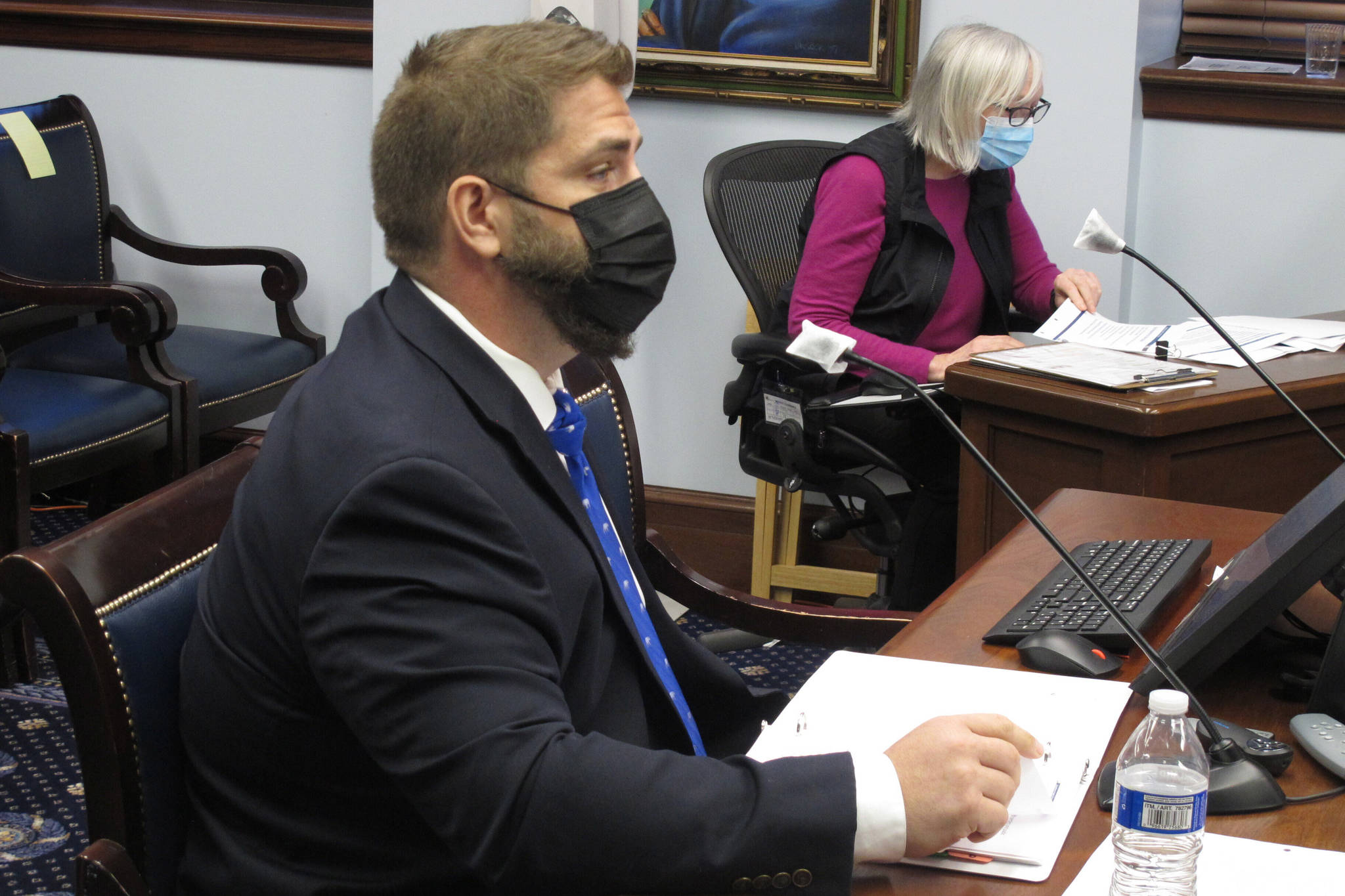By Becky Bohrer
Associated Press
JUNEAU — A disaster declaration intended to aid Alaska’s response to the COVID-19 pandemic is set to expire this weekend unless action is taken to extend it.
Health and emergency officials warn a failure to extend could restrict the state’s ability to distribute vaccines and set back progress in combating the illness.
Three weeks into the legislative session, the politically divided House has yet to organize, and until it does, it can’t consider or act on bills. Members of the Republican-led Senate have chafed at Gov. Mike Dunleavy’s proposal for an extension through September and say they are looking at whether they can provide the tools Dunleavy needs to respond to the pandemic separate from a declared disaster.
The pushback is fueled, in part, by anger in places like Anchorage, where local officials have imposed restrictions on businesses to curb the spread of COVID-19, though that action is not dictated by the state declaration. Some lawmakers also think Dunleavy, a Republican, overstepped in issuing new declarations without legislative involvement in recent months.
“I think Alaskans want the disaster declaration to end,” Sen. Mia Costello, an Anchorage Republican, said last week. She noted the bill is being vetted and suggested that if the procurement of supplies is such a concern that a disaster declaration is needed to push things along, maybe the procurement process should be reviewed.
Senate Majority Leader Shelley Hughes, a Palmer Republican, in her newsletter described plans for a Senate proposal that would give Dunleavy the requested tools but in a way that provides “checks and balances.”
“We are eager to work collaboratively with Governor Dunleavy, but ceding our legislative authority to the executive branch in the name of a disaster that can not be properly articulated sets precedent that is questionable at best, and dangerous at worse,” she said.
The current declaration is set to expire at midnight Sunday.
The heads of the Alaska State Hospital and Nursing Home Association, Alaska Chamber, Alaska Municipal League and Alaska Native Health Board urged an extension in an opinion piece in the Anchorage Daily News.
“Like you, we are tired of COVID-19 and want this to be over. But ending Alaska’s public health disaster emergency declaration will not bring normalcy. Rather, it will delay the very thing we all want,” they wrote.
They say, among other things, that local governments rely on the state’s ability to move people and supplies to communities that need them and to arrange mass vaccination and testing in areas that lack the powers or resources to do those things on their own.
Under the state’s disaster law, the governor can suspend regulations if compliance with those would impede action necessary to cope with the emergency. He also can allocate or redistribute resources and alter state agency functions to provide emergency services.
Heidi Hedberg, director of the state Division of Public Health, told lawmakers that without an emergency declaration, the state is “extremely limited” in its pandemic response. There would be no centralized management to allocate scarce resources, which would jeopardize the state vaccine administration framework, she said.
Dunleavy’s proposed extension also includes provisions allowing for health care providers licensed in other states to practice telehealth in Alaska without being licensed here and allows for licensing boards to grant expedited licenses to individuals holding a corresponding license in good standing in another state until the disaster declaration expires.
Dunleavy’s bill was assigned to three Senate committees and advanced from the first one Tuesday following amendments, including one that would extend the declaration to March 15.
Senate President Peter Micciche has said the Senate will “meet our deadlines” and said Dunleavy may choose to act on his own, again, if the House remains unorganized and he isn’t sent a bill. State health Commissioner Adam Crum recently told lawmakers he did not believe Dunleavy would issue a new order because the Legislature is in session.
Lawmakers in both parties have questioned the constitutionality of Dunleavy issuing successive new orders between November and January, when they were not meeting.
Rep. Bryce Edgmon, a Dillingham independent who previously served as House speaker, said Tuesday an option being considered is a “consent document” that would provide an assurance of support from the House for another 30-day order from Dunleavy. He said lawmakers were working with their attorneys on such an approach and details were being worked on.
Dunleavy spokesperson Jeff Turner by email said he had “no information on that at this time.”
Other states also are wrestling with this issue or debate over emergency powers. In Michigan, Republican lawmakers successfully sued to end that state’s declaration. Gov. Gretchen Whitmer is using a different law to issue health orders, prompting additional fights with Republicans.
Dunleavy’s bill has a retroactive clause, but it’s not entirely clear what that might mean practically if the declaration expires.
Hedberg said contracts remain in place for testing of travelers at airports to continue. But she told lawmakers health orders tied to the declaration that include the testing requirements would have to change “into possibly recommendations” if the declaration lapses, and that an effect of that would be less compliance.
She credited the airport testing program with helping to identify more than 2,300 COVID-19 cases, which she said has helped to mitigate spread of COVID-19.
Since the start of the pandemic, Alaska has reported more than 53,800 resident cases of COVID-19 and 278 related deaths.
According to the U.S. Centers for Disease Control and Prevention COVID-19 Vaccine Tracker, as of Monday, 15% of Alaska’s population had received one dose of vaccine and 5.6% had received two doses, making Alaska one of the leaders among states for those aspects.

